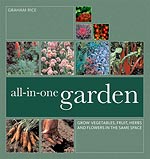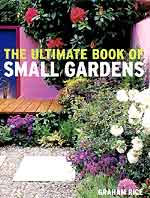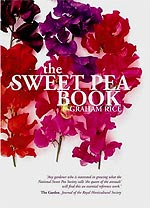
Profile - Christopher Lloyd
There are few garden writers whose work can be described as literature rather than simply writing. Add creative fire, humour and an independence of spirit to enhance plant knowledge and horticultural insight and you have a unique writer and plantsman whose influence has spread to gardeners across the world. His pre-eminence has been recognised by his award of the Victoria Medal of Honour by the RHS in 1978, an Honorary Doctorate from the Open University in 1997 and an OBE in the Millennial Honours List.
I first encountered Christo, as his friends know him, in the mid 1980s when he reviewed one of my first books in Country Life where he’Äôs written a weekly column, without a break, for almost forty years. He was very complimentary and, after an exchange of letters, he invited me to stay at Great Dixter. I was nervous to say the least, awed by my by own respect for him, but his hospitality, not to mention his cooking, made the visit very special.
He enjoys the comforts of his house, with large log fires vying for supremacy with draughts; he enjoys his food and is an excellent cook, using produce from Dixter’Äôs garden. After a heart bypass operation a few years ago he returned home to the sort of meal his doctor’Äôs would surely have advised against on strictly health grounds but Christo is determined to enjoy life.
A later visit to Dixter was not without incident. His house is a wonderful coming together of two houses, in 1910 Edward Lutyens extended the original house, the earliest parts of which date from 1464, by moving a house from a nearby of village and adding it on. The result, for the visitor, is an incomprehensibly rambling warren of passages, rooms and staircases with the light switches hidden in bewildering nooks.
We sat by the fire after dinner reading and talking about plants and then he went to bed and left me to enjoy the cosiness. But when I left the room to make my way upstairs I found the whole house in darkness. I had enough trouble finding my way to my room in daylight - at night it was hopeless. I inched around the walls feeling for a light switch, cracking my shins on ancient oak chests and fearful of tumbling down invisible stairs. Eventually I was able to light my way and reach my room. When, at breakfast, I mentioned the fact that he’Äôd switched off every light in the house his ’ÄòDid I? Oh dear.’Äô was accompanied by a decidedly mischievous twinkle.
And that’Äôs one of the features about his writing that sets Christopher Lloyd apart from other gardening writers - he sparkles, he makes jokes, and sometimes he makes mischief. Reading Foliage Plants first made me aware that garden writing did not have to be earnest and worthy but could be funny.
He tells you what he thinks and if you don’Äôt like it - too bad; his writing is not about trying to make his readers feel so comfortable that they doze off. The point is that by reacting to his ideas you think about what he’Äôs said and, even if you continue to disagree with him, working out why you think he’Äôs wrong enables you to hone your own opinions. He makes you think as well as laugh and gardening is as much about thinking about what you’Äôre doing, and what you’Äôve done, as it is about actually doing it.
Christo is a great one for encouraging young gardeners, parties of students from Wye Collage, in Kent, where he once taught, and from the Royal Horticultural Society’Äôs garden at Wisley, are regular visitors to Great Dixter and he also enjoys collaboration. He worked with Tom Bennett on an invaluable revision of his Clematis (first published in 1965), he enjoyed having novelist Frank Ronan select from nearly 40 years of Country Life columns for the collection, In My Garden. He’Äôs exchanged letters on plants, gardens, cooking, opera and much else with Beth Chatto for Dear Friend and Gardener and I had the pleasure of collaborating with him on Garden Flowers from Seed.
Ours is a unique book, in which we each discuss the same plants, in a conversational interchange. We agree, disagree, or sometimes just allow the other to have his say. These days we would have done it all by email but ten years ago we exchanged contributions, cutting them up, pasting them together then reviewing and rewriting the result. It was great fun; Christo’Äôs eye for a good plant, and a good phrase, was a real inspiration and I’Äôm sure my own writing improved as a result. And we gave readers two strong opinions with which they could disagree.
Another great strength is simply his productivity. He’Äôs been writing every week for Country Life since May 1963 and for many years has also been writing every week in The Guardian. He’Äôs had regular stints in The Observer, who were so loath to let him go, even when they had no room for his column, that they continued to pay him, and for the now defunct Popular Gardening. Occasionally, his columns are no more interesting than those of only ’Äògood’Äô gardening writers but over the decades the spark has very rarely dimmed.
He’Äôs written twenty books, revised a number of them for republication and illustrated many with his own pictures; he lectures all over the world, judges for the RHS at shows and at the Wisley flower trials, and takes parties round his garden. Ah yes, his garden.
It’Äôs a bit of a standing joke that most garden writers’Äô gardens hardly stand the scrutiny of the neighbours, let alone their peers, but at Dixter, Christo has made one of the country’Äôs finest. And this is the source of his inspiration. He, with his invaluable head gardener Fergus Garrett, grows plants, and the garden is constantly evolving. A recent transformation came when the family rose garden was swept away, constant replanting over the decades having led to increasing weakness of the plants. There was uproar amongst more conservative gardeners but the new tropical style plantings are a triumph. And the nursery too is being re-vitalised so visitors can buy the plants they see in the garden.
There is little space here to quote from Christopher Lloyd’Äôs writings. I re-read a number of his books in preparation for writing this, and dipped into more, and could have quoted you whole chapters. Many of his books are still in print, and most of the others available secondhand - so get hold of them.
But I leave you with these two excellent pieces of advice, all the more valuable in a field where so many gardeners are so afraid of enjoying change: ’ÄòThe great thing is to be receptive to ideas, from wherever they may have sprung,’Äô he says in Foliage Plants. But the advice which even more people seem unable to put into practice was slipped into the introduction to In my Garden: ’ÄòGardening, like living, should be fun,’Äô he says. I couldn’Äôt agree more.
Christopher Lloyd’Äôs Garden Flowers
Almost four hundred pages of experience and insight on perennials, bulbs, grasses and ferns fill Christopher Lloyd’Äôs most recent book. I disagreed with his view on the very first plant I looked up but have been checking his opinions, and then reading on, ever since. This is not a dry-as-mulch encyclopedia but a stylish personal view of the plants he knows best. (Cassell, ¬£30)
Garden Flowers from Seed
A combination of my own and Christo’Äôs experiences of raising a vast variety of annuals, perennials and a few shrubs from seed. Presented as a conversational exchange of views, we don’Äôt always agree but we have fun explaining our views and trying to convince each other. And there are often two views with which readers can disagree. (Timber Press, ¬£25)
Read Christopher Lloyd
This is a full list of titles by Christopher Lloyd up to 2001. Some or in print, some are not, others are published in the USA but not in the UK. The best sources are online, at amazon.co.uk and, for used copies, bibliofind.com.
The Mixed Border (1957)
Shrubs and Trees for Small Gardens (1965)
Clematis (1965, revised 1989)
Hardy Perennials (1967)
Gardening on Chalk and Lime (1969)
The Well-Tempered Garden (1970, revised 1985)
Foliage Plants (1973, revised 1985)
The Adventurous Gardener (1983)
The Well-Chosen Garden (1984)
The Year at Great Dixter (1987)
Cottage Garden (1990)
Garden Flowers from Seed (1992)
Christopher Lloyd’Äôs Flower Garden (1993)
In my Garden (1993)
Planting Your Garden (1993)
Other People’Äôs Gardens (1995)
Gardener Cook (1997)
Dear Friend and Gardener (1998)
Christopher Lloyd’Äôs Garden Year (1999)
Christopher Lloyd’Äôs Garden Flowers (2000)
Visit the garden at Great Dixter
Christopher Lloyd’Äôs garden at Great Dixter is in the village of Northiam, ten miles north of Hastings, just off the A28, in East Sussex. It is open from April to mid-October, daily, except Mondays (but open on Bank Holiday Mondays), 2-5pm, and is worth visiting at any time. The house is also open. Ring 01797 252878 for up to date information.
Buy plants from the Great Dixter Nurseries
The nursery at Great Dixter, which specialises in clematis together with shrubs and perennials from the garden, is open Monday to Saturday, all the year round, and on Sundays when the garden is open. Plants are also available by mail order, send four 1st class stamps for the latest catalogue to Great Dixter Nurseries, Northiam, Rye, East Sussex, TN31 6PH. For more information consult the latest edition of The PlantFinder, ring the nursery on 01797 253107 or email them.









